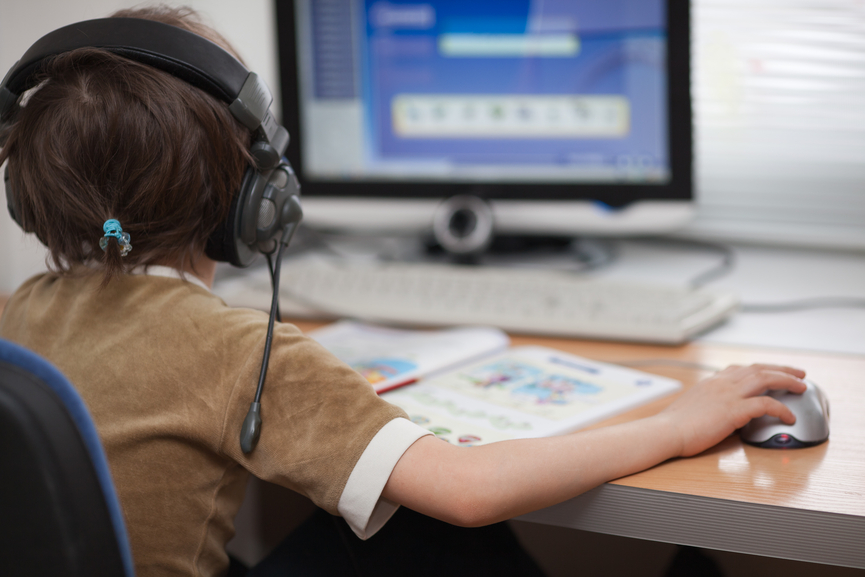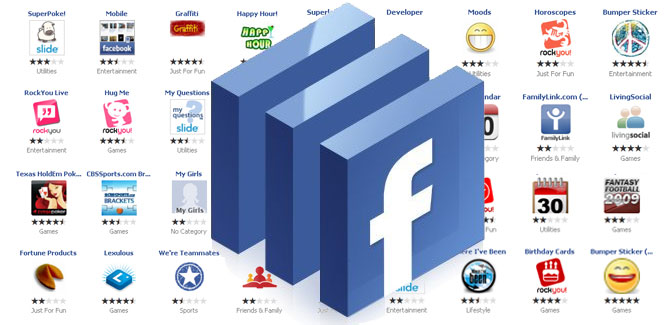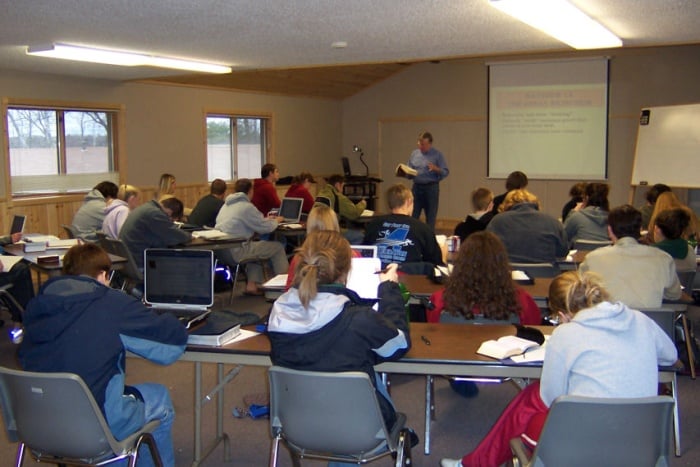Parents, do you love to snap pictures of your children on your smart phone and then upload them for family and friends to see? What if I told you that this practice could make it very easy for predators and bad guys to see where your children were located, even down to the exact spot of their bedroom? Might freak you out, right?
10 Things Parents Do On Social Media That Embarrass Their Kids
Most adolescents and teens can’t imagine a world without Facebook, Twitter and other social media sites. As a parent, you may feel a responsibility to monitor your child’s social media use, and that makes sense.
However, it’s important to make a distinction between necessary monitoring, which you’re doing for your child’s safety, and simply impinging on their social life and interactions with their friends. Facebook for kids is a form of interaction – one that most children want limited to their peers as much as possible.
Here are 10 things that parents do on social media that might be embarrasing to their children:
Instagram and Privacy: There is a Serious Issue Here
In this article from The Washington Post, Cecilia Kang investigates underage children, Instagram, and if the image-sharing giant is doing enough to make sure kids are safe from adult strangers. We agree that the safety of children online should be the number one priority from all of these social networks, but unfortunately that is not always the case. Here is an excerpt of the piece below:
Why You Should Be Monitoring Your Child on Instagram Right Now
Instagram is one of the newest forms of social media that is being utilized by millions all over the world. Using pictures to communicate thoughts, feelings and ideas, this appeals to the younger masses especially and many tweens and teens are flocking to this form of communication to express themselves. Uploading their pictures directly from the applications on their phones or tablets using frames and decorations makes it easy and fun to use to connect with friends and followers.
But Instagram isn't rated PG and there is no actual filter or censorship of what can be shared. There is a ton of content on there that many parents would deem pornographic or simply inappropriate, which is why Instagram monitoring is key. If you're concerned with what your kids are watching, what they're exposed to on the internet and the company that they keep, you should be just as concerned with what they are involved in on their social media applications, including Instagram.
Instagram: It's More Than Just Pictures
Instagram is an application that can be downloaded to several different smartphones and cellular devices. This application is a photo sharing one in which users can take pictures, add special effects, and then share them on several different social media sites with just the click of a button. The photo is then placed out there into the network of friends the users have, both those that have the application themselves and those who do not, resulting in a sharing of moments and memories quickly. The program, however, does not come without dangers. As with any social media sharing entity, the quick expression and release of information is both exciting and dangerous. It is for that reason that parents need to understand the risks and be instagram monitoring vigilantes, especially when it comes to their children that use the application.
Prying Eyes
One of the reasons that Instagram monitoring needs to be taken seriously is because, as with any social media site,
Online Parenting TMI: Sharing Information Puts Your Family at Risk
Social media overshares generally land somewhere on the "enjoyable spectrum" between a hoard of blood-thirsty mosquitoes and a Gilbert Godfrey recording on repeat. In addition to often being crass and irritating, social media overshares can lead to serious crimes and bullying. It’s time to wise up and teach your family proper social media etiquette, it could save more than just a reputation.
Don’t Leave Trails
While it may be tempting to countdown to your school vacation or brag about your weekend trip to the slopes, disclosing any dates or times you may be out of town is basically like slapping a “SITTING DUCK” sign outside your home. Even posting the cliché complaint about long school hours or grueling work schedules can be a tip-off to anyone looking for a mark to loot. Even if you trust everyone on your friend’s list, can you guarantee all of their friends are hundred percent trustworthy? Or, every single person on your list is at a zero percent risk of leaving their account open somewhere?
Protecting the Puzzle Pieces of Your Child’s Identity
This guest post is brought to you by Tami Nealy, Senior Director of Corporate Communication with LifeLock. Today, she writes about child identity theft protection, one of the latest digital dangers parents should be educated on.
Digital Parenting, Facebook and the College Admissions Process
We’ve heard quite a bit about how Facebook is a forum for cyberbullying and how the mental health of teens can be affected by it. Added to this is the fact that there are sexual predators out there, looking to prey on children or teens through Facebook. These are issues that have received quite a bit of attention but there are other issues, not currently in the forefront, that can have an equal impact on a child’s life in the long run. It may not occur to your teen to consider these issues but you can help them out with some digital parenting.
One of these issues arises when teens are applying to schools. They may not realize it but admissions officials routinely check out applicants’ Facebook pages nowadays. If they don’t like what they see, it may prejudice them and cost the teen his/her admission to that school. So it’s necessary to consider the teen’s Facebook page as one of the components of the college application, just like the SATs, the academic recommendations and the application essay. In some ways, the Facebook page can even carry more weight because admissions officials feel that they are getting the uncensored version of the story. A student may be able to present himself/herself well in a college application but his/her Facebook page may tell a different story, especially if it goes back a few years.
Why Facebook Keeps Violating Your Privacy: Facebook Safety Alert
FACEBOOK SAFETY ALERT
Shared via Yahoo! News: The latest controversy over who can use your Instagram photos is far from an isolated event.
Facebook's photosharing site Instagram backtracked Tuesday on its new user privacy policy that would have allowed the site to sell users' photos to advertising agencies.
After a huge outcry from Instagram users on both Facebook and Twitter, co-founder Kevin Systrom wrote on the company's blog:
Training Wheels For Facebook: Being a Digital Parent
Parents know that there are certain things we have to teach our children to handle responsibly before we set them free. Most children progress from tricycle to training wheels to big kid bike under parental supervision. It’s only after they’ve learned to ride safely, wear a helmet, and obey the rules of the road that we set them free to ride around the neighborhood. Getting that first driver’s license is an important rite of passage for most teens, but few parents would hand over the car keys to a brand new driver and allow him or her to hit Route 66 for a cross-country road trip. New freedoms are first exercised within boundaries. Cars and bicycles are one thing, but what about teaching your child to navigate social media? Do you have Facebook training wheels?
Let’s just assume for the moment that your child is at least 13 and not one of the 7.5 million Facebook users under the age of 13. There are good reasons for your child to use Facebook and other forms of social media. Here’s the big one: in today’s world, this is how adults communicate. We teach our children how to answer the phone, eat with good table manners, and speak to adults politely. We need to teach them how to appropriately navigate social media as well. Facebook’s user controls don’t always make that easy, however. One out of five adult users don’t utilize Facebook’s privacy settings. Does your child? If you child was one of the one million minors who experienced abuse, threats, or harassment last year, would he or she know how to handle it? Would you know that it had happened?
Cyberbullying: A Mother's Story, Part II
After the frightening night-time incident (see Cyberbullying - A Mother's Story, Part 1,) Bud became understandably paranoid. He would no longer leave the house unless we drove him to his destination, even if it was just around the corner. He and his friends used to walk all over town and now he was getting so little sunshine that he was eventually diagnosed with Vitamin D deficiency.
During the week that followed, one of Bud's friends texted him and told him to check out G's Facebook wall. G had a public and completely open Facebook page--anyone could see it whether or not they were his friend. Bud called me over to see what G had posted. Right there on G's wall was an invitation - " bud morris, come over to my house... I have a bottle of bud and a freshly dug grave in my backyard for you..." "I want to grow my hair long so I can strangle bud with it."
Cyberbullying: A Mother's Story
Our son, Bud, loved cyberschool. During his sophomore and junior years his grades got better, his attitude improved, he started hanging out with friends again. Towards the end of his junior year, Bud decided he wanted to go back to public school for his senior year. We were all very excited about his progress. Some of Bud's friends from junior high had taken a wrong turn in high school and started taking methamphetamines. Bud had no use for that and stopped hanging out with them, although they all parted on good terms.
The problem was that G, the younger brother of one of these boys, had looked up to Bud as a protector and was very resentful when Bud stopped hanging out with G's brother and friends. G is a troubled child -
Teen Olympian Responds to Cyberbully on Twitter
Anybody can be the victim of a cyberbullying. Even an Olympic athlete.
Eighteen-year-old Zoe Smith's Olympic event hasn't occurred yet, but a handful of cyberbullying comments on Twitter put her in the spotlight recently.
A Twitter user going by the name of Infidel1978 sent cyberbullying messages to the teen Olympic weightlifter and some of her teammates after they were featured in a BBC documentary called “Girl Power: Going for the Gold.”
Teens With Fake Social Networking Profiles: Are Your Kids Safe?
Social networking is on the rise, and so is parental monitoring. The good news is that most parents actively enforce rules regarding Internet safety and engage in various types of monitoring to ensure their child's safety on social networks like Facebook, Twitter, and MySpace.
The bad news is that many kids try to get around parental monitoring by creating a “dummy” profile, and many parents are none the wiser about it.
Your Teen’s Online Reputation: Keep It Positive. Keep It Safe
Online reputation is everything to teens, especially when their social lives exist almost entirely online. Much of what teens do and say online is guided by their need for acceptance among their classmates and other peers. But with the ever-changing nature of the Internet, what happens when a teen’s reputation gets away from them and seems to take on a life of its’ own?
Without proper management, just a few simple mistakes posted online could follow your teen years down the road, and even affect potential employment opportunities. While there are many things you and your teen can do to keep their online name in good standing, here are the top three things we think are important:
7 Kids Safety Questions to Ask Your Blogging Children
For many teens blogs are a creative outlet, a way to develop a technical skill set, and a fun way to express themselves.
Does your child have a blog? And if so, what Internet safety questions to you need to be asking your blogging kids.
Question #1: What is your blog about?
Your child's first answer will be “I don't know... stuff.” But ask again with interest. Is it an online journal? A site dedicated to their favorite celebrity? A place for their favorite book and movie reviews? If they are very secretive about the basic contents of their blog, it may be time to get concerned.
What Parents Need to Know About Apps on Facebook for Kids
If you have Facebook for kids of your own, you've discovered that it's more than just a social network. It's a platform for thousands of applications that allow you to do pretty much anything.
With apps, you can send a card to a friend, take a quiz to find out which character from The Hunger Games you are, or answer trivia questions that donate proceeds to charity.
But as fun and enriching as they may be, Facebook apps can be a serious security concern – especially where your kids are concerned. Facebook apps can contain malware and many access a ton of your child's personal information – even without his knowledge.
If you are a parent with a child on Facebook, here are some things you need to know about apps:
Read More »Teen Communication: More Texting and Sexting Than Talking
Which way does your teenager prefer to communicate? Sexting and texting, or face to face?
Most parents would guess “technology.” But even in a world where teenagers seem glued to glowing screens… face-to-face still rules. Ericsson, the cell phone manufacturer, just did a study where they asked young people, “Which method of communication would you miss the most?” The answer should be encouraging to many of us who are worried about our teenagers’ growing dependence on technology. “Meeting in person” was the number one answer.
Replacing Facts with Skills in the Classroom: Internet Safety
A student asked me recently: “Why do I need to know when Frankenstein was published? I have a smart phone—I can always find the answer if I need it.”
He was right. And while I can expound easily and at length about how important it is to understand the time period in which an author was writing in order to fully analyze the novel, for most students in American high schools today, my lecture would fall under the “not relevant—tune out” category, and instead of listening to me, they’d spend the next twenty minutes ignoring my painstakingly planned lesson in favor of tweeting and texting their friends from under their desks.
Proposed CA Law on Social Networking Privacy and Facebook for Kids
Every parent knows that Facebook for kids and children on social networking sites need to vigilantly safeguard their privacy. Apparently lawmakers know that too, and legislators in California are proposing a new bill aimed at protecting the privacy of social networking users.
Initially, the proposed bill only applied to users under 18, but that provision has since been struck and the bill would now apply to users across the board regardless of age. It would require social networking websites to:



















